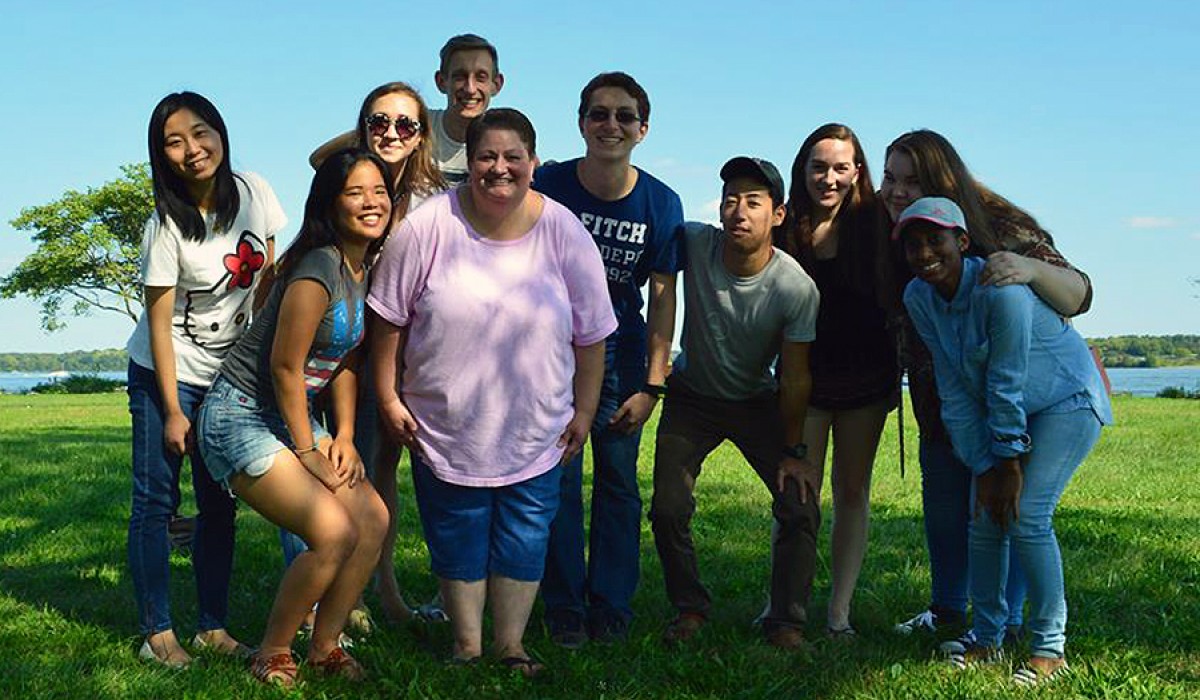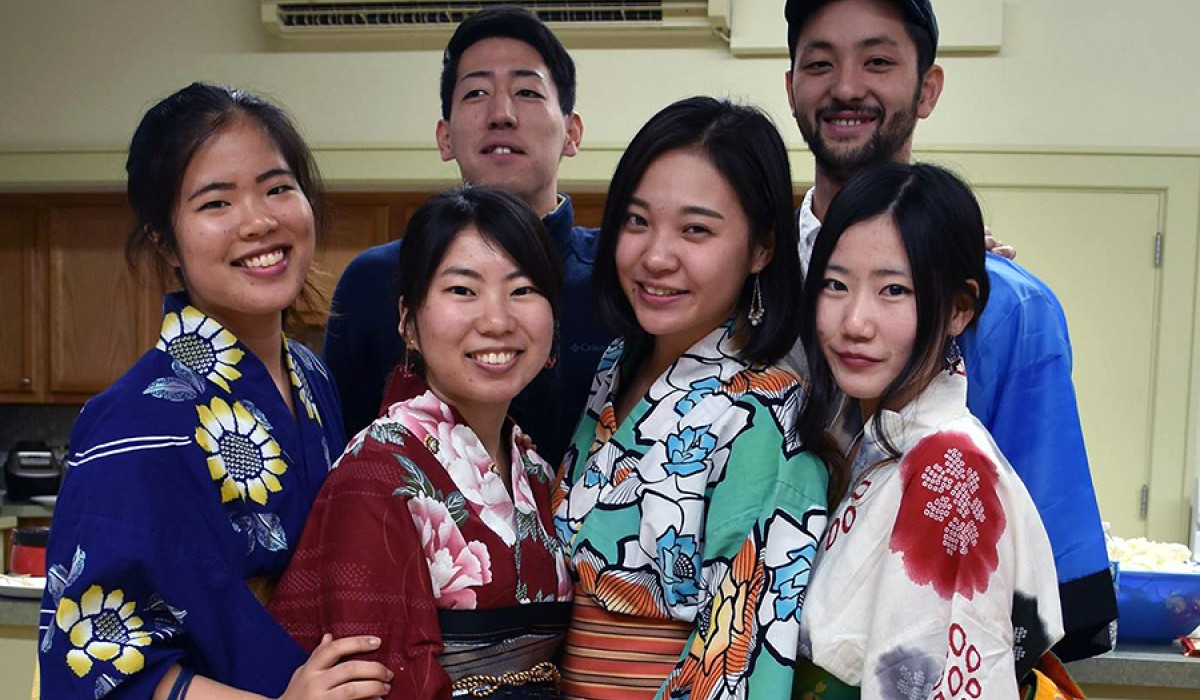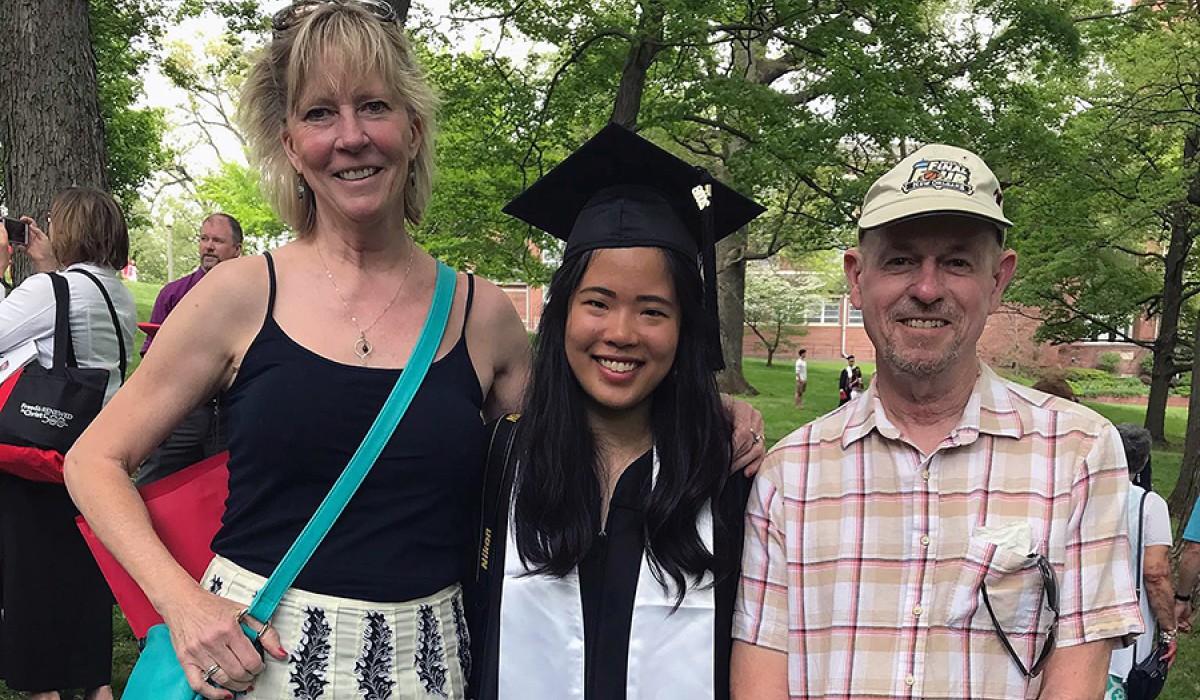1. Where are you from? Why did you choose to come to Wittenberg? What are some of the differences between your hometown and Springfield/Ohio?
I am from Toyama, Japan, but my home university, Kansai Gaidai University, is in Osaka. Kansai Gaidai and Wittenberg are partner schools with a dual degree program, so I received a degree from Japan and a degree from the U.S. I also wanted to attend to a small, private university to study marketing, and thought Wittenberg was a good fit. My hometown is actually similar to Springfield/Ohio in terms of weather and atmosphere. In Toyama, it snows a lot in the winter, gets hot in summer, and many people drive cars. However, Toyama is also in the countryside, near the ocean, and surrounded by visible mountains when it’s nice and sunny outside. In fact, Toyama means "Rich Mountain.” The land is pretty flat in Springfield, though. Also, having lived in Osaka, one of Japan’s major cities, for two years, I was shocked to find that there is not much public transportation or business in Springfield.
2. What major(s)/minor(s) did you pursue while at Wittenberg? Do you feel that your learning experience here provided you with knowledge that you wouldn't be able to gain in your home country? How so?
I majored in marketing. My home university mainly specializes in languages, cultures, and history, and it does not have a strong business program, so I definitely think my learning experience at Witt was beneficial. At Witt, I also had a chance to do a mock interview and connect with alumni, which were both helpful practice for my future career.
3. What challenges did you face as an international student? Do you feel that you were able to overcome such challenges, if so, how?
I went through a lot of culture shock and homesickness, especially during my first year at Witt. Even though I understood English, I felt left out because I did not grow up in the U.S. and did not fully comprehend certain sayings. At times, I felt like I did not belong here (the U.S./Wittenberg/etc.) because I am Japanese and did not have enough knowledge to understand the culture or the people. However, once I made good friends, both local and international, and was able to share my feelings and struggles with them, I started to feel better. At Witt, there is also an International Education Office, and there, Amy always supported me and other international students by listening to us and providing us with fun activities and events. My host family was also supportive, and they were key persons in my decision to stay one more year at Witt to finish my degree. Wittenberg also hosted some international events, like the East Asian Festival, that were great opportunities for me to share my culture and feel like I was at home. I was also VP of the American International Association (AIA) and made most of my good friends in that organization. It was easy for me to talk to people who have been abroad or are interested in different cultures/languages. Just getting involved helped introduce me to many of my friends and made me feel like I belonged at Witt.
4. Were you involved in any extracurricular activities while at Wittenberg? How did your involvement in outside activities affect your student experience?
I was the VP and Senator for the American International Association, Public Relations officer for the Imani Gospel Choir, a photographer for the Torch newspaper, and a member of both the Swing Dance and Green clubs. I think being involved in these activities enriched my experience at Wittenberg. Though I was not as involved during my first year at Witt, as I entered my second year, I met more people from different groups, and working with them was new and fun. I was very motivated by them and felt encouraged to do new things and get more involved.
5. What advice would you give to international students thinking about studying at Wittenberg?
Don't worry about all the new experiences you are about to have. Get involved, meet lots of different people, talk to someone whenever you feel homesick or concerned, and use all the good resources Wittenberg offers. Before I studied abroad, I did not imagine myself feeling culture shock or homesickness because I had so many American and international friends at home. However, not every student at Witt was interested in me or my culture, and I was afraid to make friends at first. But once I joined AIA and other organizations, more people welcomed me, so I gained confidence. Also, good resources to turn to are the International Education Office, the Writing Center, Student Development, the Diversity House, the Language Learning Center, COMPASS, and your professors' offices. Your friends can be good resources too. I talked to my friends whenever I felt down. Lastly, be proud of your culture and country. Some international students try to hide or forget where they came from, but I don’t think that is right. It’s not your job to share your culture with local students, but sharing your culture with others provides a great opportunity for local students and the community to get to know you and where you come from. It’s important to think about your family, friends, and culture back home, and it’s okay to think, look, sound, and be different. So have confidence that you will make a great impact on Wittenberg and Springfield.




